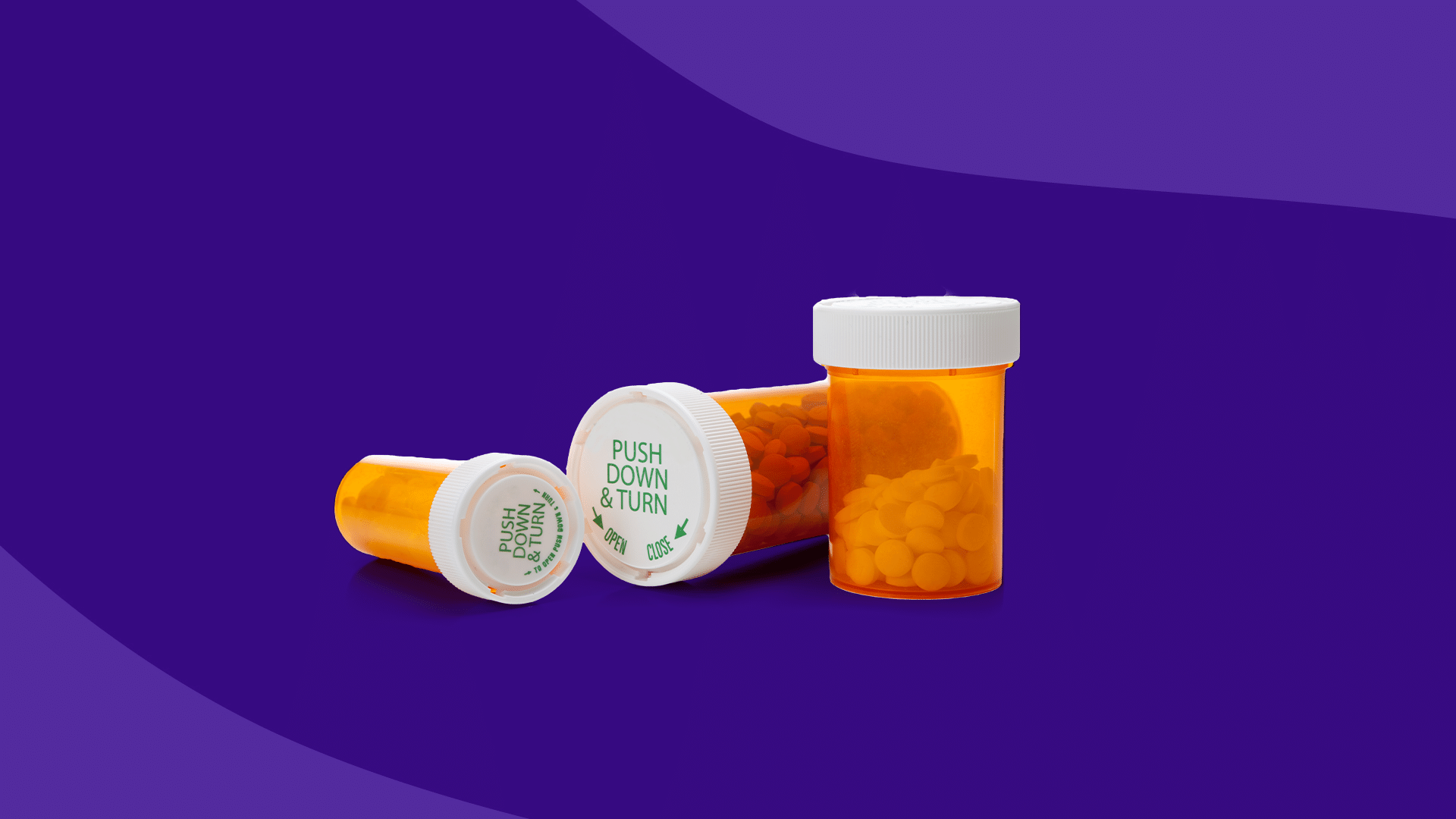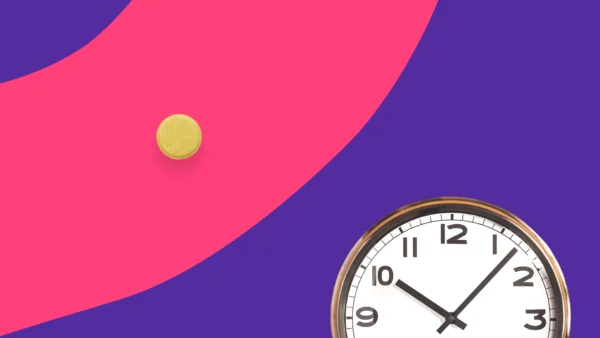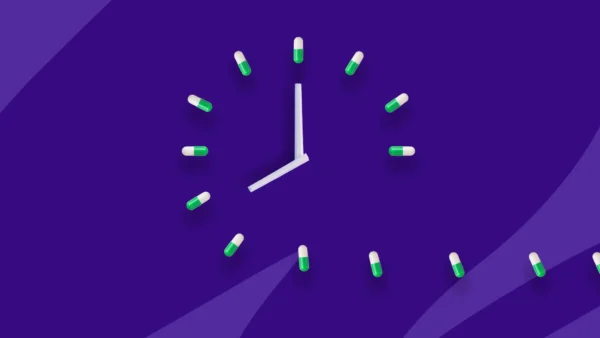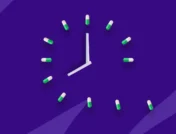Is trazodone covered by insurance? | How much does trazodone cost without insurance? | How to get trazodone without insurance
Trazodone hydrochloride is a generic antidepressant that is FDA approved to treat adults diagnosed with major depressive disorder. Some healthcare professionals may prescribe trazodone off-label for other conditions, such as general anxiety disorder, panic disorder, and insomnia. As an atypical antidepressant, trazodone balances the brain’s chemistry to give people greater control over their mood. Brand-name trazodone, Desyrel, is no longer sold in the United States, so patients can only purchase generic trazodone at this time. Fortunately, even at full retail price (the cost without insurance and before discounts), generic trazodone is affordable.
Is trazodone covered by insurance?
Trazodone is covered by many insurance plans including Medicaid, Medicare Advantage, and Medicare Part D prescription drug plans. As a generic drug, trazodone is typically considered a preferred drug over brand-name alternatives (see this Humana generic alternatives list for example) and it’s often on a lower tier for formularies (see this United Healthcare formulary for example).
How much does trazodone cost without insurance?
Trazodone is fairly affordable. A supply of 30, 50 mg tablets costs $24 on average, or less than $1 per tablet. However, the standard dosage is 50 to 100 mg taken two or three times per day, so a 30-day supply could cost $48 to $72 per month depending on the dosage. Trazodone therapy at full cash price would cost $575 to $865 over the course of a year, but higher doses will cost more.
That yearly cost can be easily reduced to just $60 with a SingleCare discount card. Although trazodone is one of the least expensive generic antidepressants on the market, most others sell for a comparable price. Again, with a SingleCare coupon, most can be purchased for $5 or less per month without insurance.
First-generation antidepressants called tricyclic antidepressants are usually some of the cheapest treatment options available. However, different antidepressants are not always effective in every person and some may experience side effects they may not be able to tolerate. Trazodone is no exception and its side effects include drowsiness, constipation, elevated blood pressure, and, less commonly, allergic reactions. Before switching antidepressants to save money, it’s always a good idea to get medical advice from a healthcare professional.
While there are some over-the-counter medications and dietary supplements that can improve a depressed mood or mild anxiety, they are not considered effective treatments for major depressive disorder, anxiety disorders, or other psychiatric conditions treated by trazodone or other antidepressants.
Compare trazodone prices to related drugs |
|||
|---|---|---|---|
| Drug name | Price without insurance | SingleCare price | Savings options |
| Trazodone | $33 per 30, 100 mg tablets | $4 per 30, 100 mg tablets | See updated prices |
| Prozac (fluoxetine) | $32 per 30, 20 mg tablets | $4 per 30, 20 mg tablets | See updated prices |
| Celexa (citalopram) | $33 per 30, 20 mg delayed-release capsules | $4 per 30, 20 mg delayed-release capsules | See updated prices |
| Paxil (paroxetine) | $35 per 30, 20 mg tablets | $4 per 30, 20 mg tablets | See updated prices |
| Zoloft (sertraline) | $39 per 30, 50 mg tablets | $5 per 30, 50 mg tablets | See updated prices |
| Lexapro (escitalopram) | $73 per 30, 10 mg tablets | $7 per 30, 10 mg tablets | See updated prices |
| Ambien (zolpidem tartrate) | $87 per 30, 10 mg tablets | $8 per 30, 10 mg tablets | See updated prices |
| Silenor (doxepin) | $29 per 30, 10 mg capsules | $1 per 30, 10 mg capsules | See updated prices |
| Lunesta (eszopiclone) | $450 per 30, 3 mg tablets | $18 per 30, 3 mg tablets | See updated prices |
Prescription drug prices often change. These are the most accurate medication prices at the time of publishing. Click the link under “Savings options” to see updated drug prices.
How to get trazodone without insurance
Trazodone is a low-cost prescription medication, but that doesn’t mean there aren’t ways to significantly save money. It may even be possible to reduce the cost to nothing with manufacturer coupons and patient assistance programs, but these often involve eligibility requirements and cumbersome enrollment procedures. There are more foolproof ways to cut the price of prescription medications, starting with a SingleCare discount card.
1. Get a trazodone coupon from SingleCare
With SingleCare, prescription savings on trazodone could reach $60 a year. Free coupons can be printed or downloaded from SingleCare’s trazodone coupon page.
2. Find community health clinics or programs
One of the best ways to save on generic antidepressants is to go to community health clinics or find other community health resources. These clinics or resources often provide generic drugs such as trazodone at little or no cost. There may be eligibility or income requirements, however. The quickest way to track down community health services is by calling your city or county’s health department.
3. Shop for the lowest price
Most people don’t realize that pharmacies charge different prices for the same medicine, and the difference can be significant. Calling several pharmacies, though, can eat up a lot of time. Instead, enter your zip code and search for your drug on singlecare.com to compare prices at pharmacies near you.
RELATED: Pharmacy finder
4. Ask the prescriber for a 90-day prescription
Some generic prescription drugs may be less expensive when purchased as a 90-day supply, especially when combined with a SingleCare savings card. For instance, the lowest SingleCare price for the total of three refills of a 30-day supply of trazodone is $15 to $18, depending on whether you take two or three tablets per day. The lowest SingleCare price for a 90-day supply of trazodone is $8 to $10.
5. Try over-the-counter sleep aids
Trazodone is sometimes used off-label for sleep. If used as a sleep aid, there are some over-the-counter options you can try that may be cheaper than prescription drugs.











